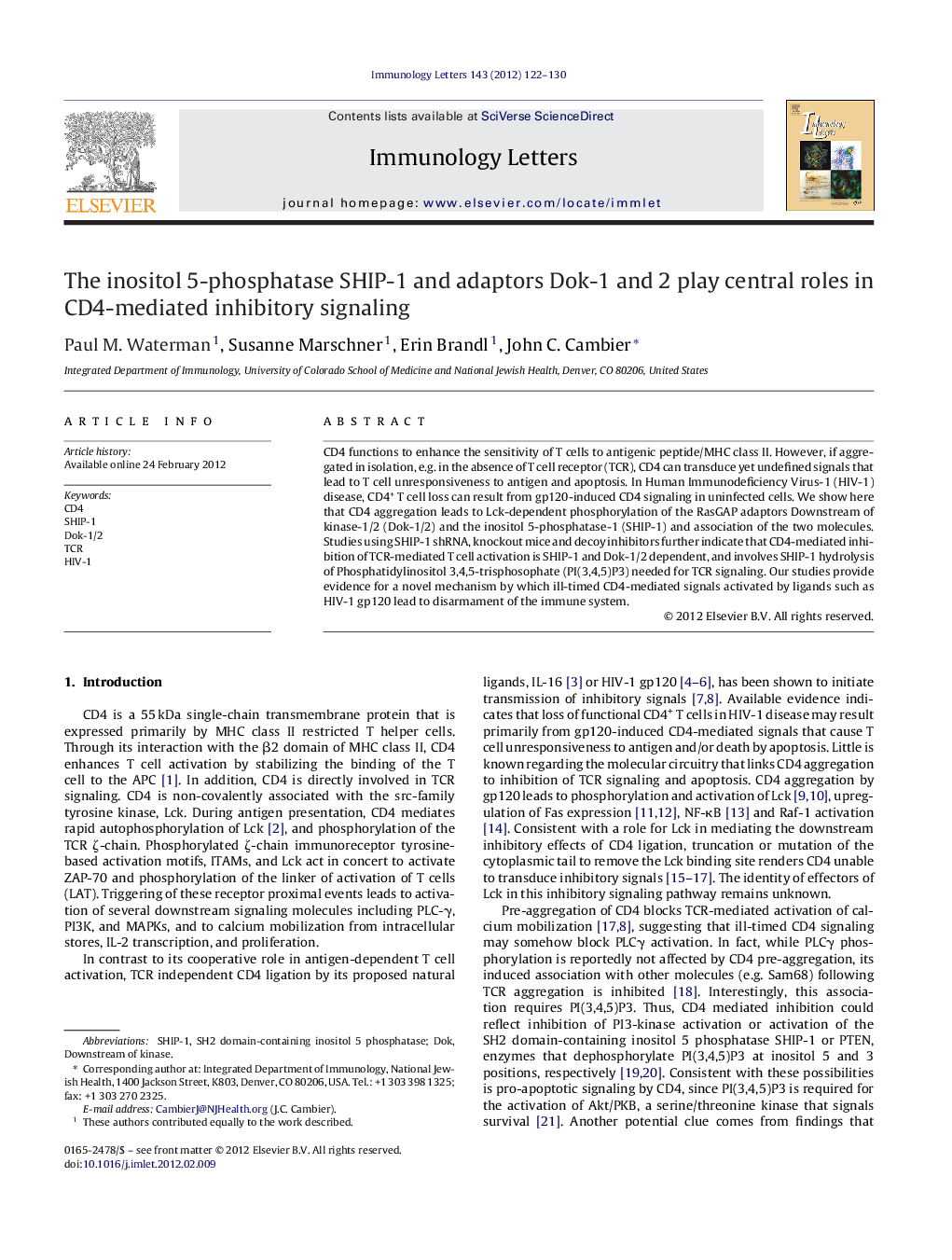| کد مقاله | کد نشریه | سال انتشار | مقاله انگلیسی | نسخه تمام متن |
|---|---|---|---|---|
| 3355655 | 1217196 | 2012 | 9 صفحه PDF | دانلود رایگان |

CD4 functions to enhance the sensitivity of T cells to antigenic peptide/MHC class II. However, if aggregated in isolation, e.g. in the absence of T cell receptor (TCR), CD4 can transduce yet undefined signals that lead to T cell unresponsiveness to antigen and apoptosis. In Human Immunodeficiency Virus-1 (HIV-1) disease, CD4+ T cell loss can result from gp120-induced CD4 signaling in uninfected cells. We show here that CD4 aggregation leads to Lck-dependent phosphorylation of the RasGAP adaptors Downstream of kinase-1/2 (Dok-1/2) and the inositol 5-phosphatase-1 (SHIP-1) and association of the two molecules. Studies using SHIP-1 shRNA, knockout mice and decoy inhibitors further indicate that CD4-mediated inhibition of TCR-mediated T cell activation is SHIP-1 and Dok-1/2 dependent, and involves SHIP-1 hydrolysis of Phosphatidylinositol 3,4,5-trisphosophate (PI(3,4,5)P3) needed for TCR signaling. Our studies provide evidence for a novel mechanism by which ill-timed CD4-mediated signals activated by ligands such as HIV-1 gp120 lead to disarmament of the immune system.
► CD4 aggregation induces SHIP-1 and Dok-1/2 phosphorylation.
► CD4 induced SHIP-1 and Dok-1/2 phosphorylation leads to inhibition of TCR signaling.
► HIV-1 gp120-induced SHIP/Dok signaling may cause loss of CD4+ T cell function.
Journal: Immunology Letters - Volume 143, Issue 1, 30 March 2012, Pages 122–130